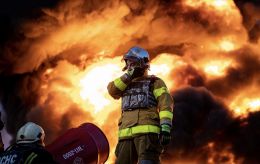Iran will face retaliation: Details on strike on Israel and Netanyahu's strategy after missile attack
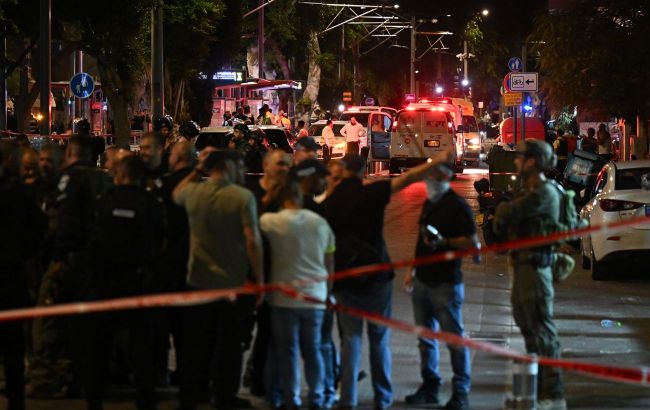 Photo: Iran massively attacked Israel with missiles, Tehran is waiting for a response (Getty Images)
Photo: Iran massively attacked Israel with missiles, Tehran is waiting for a response (Getty Images)
Iran launched over 180 rockets at Israel on Tuesday evening. While most of the targets were intercepted, Israeli Prime Minister Benjamin Netanyahu vowed retaliation, and Tehran threatened to respond to any reprisal with "significant destruction."
More about this attack and what is happening between Israel and Iran has been gathered by RBC-Ukraine in the article below.
Contents
- Rocket attack on Israel
- Iran faces retaliation
- IDF continues strikes on Hezbollah targets
- World reaction
- Escalation in the Middle East
Rocket attack on Israel
This Tuesday, around 7:30 PM, an air raid alert was declared in Israel, and residents were urged to take shelter. Israeli army radio reported that nearly 200 rockets had been launched from Iran. Explosions were heard throughout the country. In total, there were 181 ballistic missiles, although initial reports suggested as many as 400 targets.
However, most of the rockets were intercepted by Israel's Iron Dome missile defense system. Interceptions were visible over Tel Aviv, Haifa, and other cities. American destroyers also helped Israel repel the attack.
According to Axios, the rockets that were not intercepted mainly landed in open areas near an airbase in southern Israel, Mossad headquarters, and a military intelligence base north of Tel Aviv.
Videos posted online by eyewitnesses during the attack showed rocket strikes on Israel. So far, it has been reported that one Palestinian died. A few others sustained minor injuries, including two residents of Tel Aviv. Several buildings were damaged.
Air raid alerts were issued across the entire country, but Israel reopened its airspace immediately after the attack was over.
The Islamic Revolutionary Guard Corps of Iran stated that this strike was a "response" to the assassination of Hamas political bureau chief Ismail Haniyeh, Hezbollah leader Hassan Nasrallah, and IRGC commander in Lebanon Abbas Nilforushan, who were killed along with many other group leaders.
Iranian media falsely claimed that the attack had allegedly destroyed Israeli F-35 fighter jets and struck a military base and a gas platform. However, the IDF denied this, stating that the Iranian bombardment did not affect the combat readiness of the Israeli Air Force.
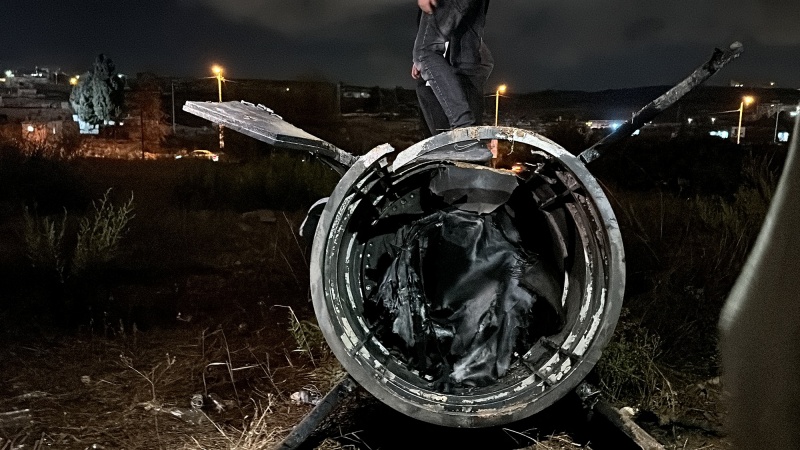
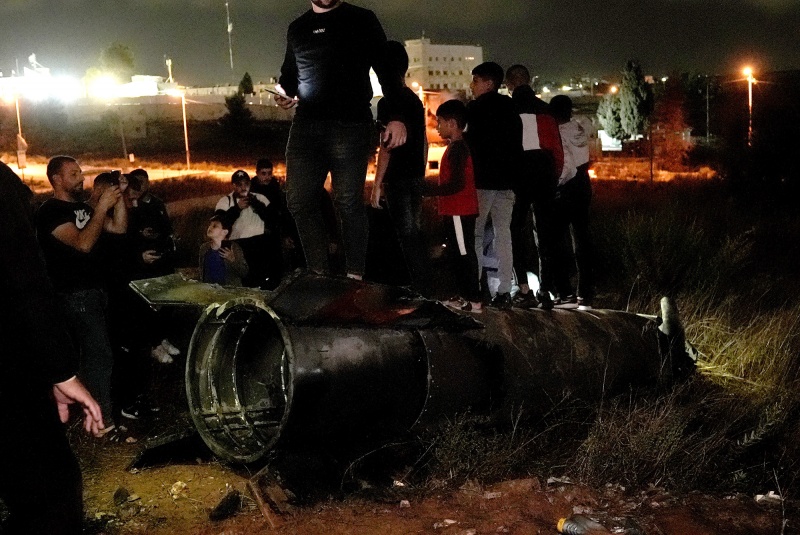
Iran faces retaliation
Israeli Prime Minister Benjamin Netanyahu on Tuesday called Iran's massive missile attack on October 1 "a big mistake" and stated that Tehran's shelling failed "thanks to Israel's air defense system, which is the most advanced in the world." He also thanked the United States for its support.
"Iran made a big mistake tonight - and it will pay for it," he said at the outset of a political-security meeting. The regime in Iran does not understand our determination to defend ourselves and our determination to retaliate against our enemies," Netanyahu said.
He made this statement while speaking at a security cabinet meeting in a protected bunker under Jerusalem. Two Israeli officials told Axios that the meeting concluded after several hours with the understanding that Israel would retaliate militarily, though no clear decision was made about what the response would entail.
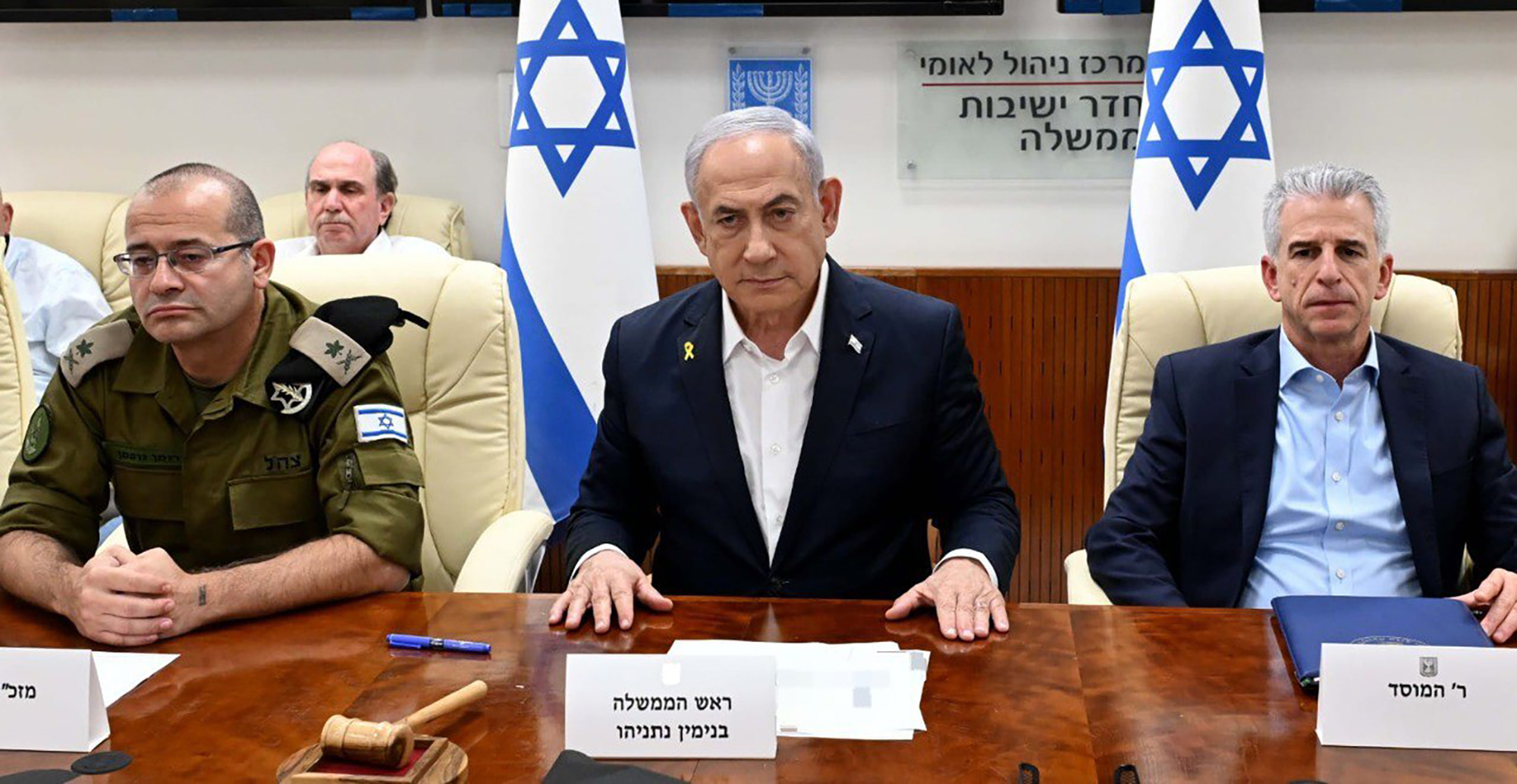
Photo: Netanyahu held a security cabinet meeting due to Iran's missile attack (Getty Images)
Axios, citing sources, reports that Israel will launch "significant retaliation" for the massive missile attack within a few days. According to the agency, all options will be considered, including strikes on Iran's nuclear facilities.
However, many Israeli officials point to Iran's oil facilities as a likely target, and some suggest "targeted killings" and the destruction of Iranian air defense systems as potential responses.
The retaliation may include airstrikes with fighter jets, as well as covert operations similar to the one two months ago in Tehran, where Hamas leader Ismail Haniyeh was killed.
A senior Israeli official told the agency that one reason no decision was made was that Israel wanted to consult with the administration of US President Joe Biden.
IDF continues strikes on Hezbollah targets
It should be noted that after Iran's missile attack on Israel, the Israeli army attacked Hezbollah targets in Beirut (Lebanon). The strike was aimed at weapon production facilities and the infrastructure of the terrorist organization. Shortly before this, on the night of Wednesday, the IDF called for the immediate evacuation of two buildings in the southern suburb of Beirut and the surrounding area within a 500-meter radius.
By the morning, IDF spokesman Daniel Hagari stated that the Israeli Air Force was still operating "at full capacity." He added that Israel would continue powerful strikes in the Middle East and also accused Iran of escalating the conflict in the region.
Meanwhile, Iran threatened that if Israel responds with force, Tehran will launch another attack.
At the same time, according to Lebanon’s Ministry of Health, at least 55 people were reportedly killed in southern Lebanon over the past day as a result of Israeli strikes, and 156 were wounded.
World reaction
Yesterday, US President Joe Biden ordered his military to help Israel defend itself against Iranian attacks and to shoot down missiles. He reported that he, along with Vice President Kamala Harris, held two meetings with the national security team.
Meanwhile, White House National Security Advisor Jake Sullivan confirmed that US Navy destroyers helped Israel intercept Iranian missiles. He emphasized that given the outcomes, "the attack appears to have failed and been ineffective."
"Obviously, this is a significant escalation by Iran, a significant event, and it is equally significant that we were able to step up with — with Israel and create a situation in which no one was killed in this attack in Israel so far as we know at this time," he said.
The Pentagon has not ruled out the possibility of another Iranian attack on Israel.
British Defense Minister John Healey stated that British troops also helped Israel repel the missile attack. According to him, British forces "played their part in attempts to prevent further escalation in the Middle East." However, he did not provide details on the UK's involvement.
EU foreign policy chief Josep Borrell said that the European Union condemns Iran's attack.
"We reiterate our commitment to Israel’s security. This cycle of attacks risks fuelling an uncontrollable regional escalation. We call on all parties to exert maximum restraint," Borrell wrote on social network X.
Australian Prime Minister Anthony Albanese condemned Tehran’s missile strike and called for de-escalation.
"We’re very concerned about Iran’s actions, which is why we condemn them. It is a good thing that it would appear that the defense of Israel, supported by the United States, has ensured that there is no loss of civilian life, it would appear, at this stage," Albanese said, adding that Israel has the right to defend itself.
There were also incidents near embassies. Danish police stated this morning that they are investigating two explosions near the Israeli embassy in northern Copenhagen. No casualties were reported.
"It is clear that the Israeli embassy is in the immediate vicinity, and that is naturally also an angle that we look at," a Copenhagen police representative told Reuters.
It is known that the UN Security Council will hold an emergency meeting today regarding the situation in the Middle East.
Escalation in the Middle East
The situation in the Middle East sharply escalated on October 7, 2023. At that time, Hamas launched a large-scale attack on Israel. After the Israeli army repelled the terrorists' invasion, it has been conducting a military operation in Gaza for several months. Recently, for the first time since the 2006 Second Lebanon War, the IDF launched a ground operation on Lebanese territory called Northern Arrows.
This was preceded by a series of major attacks on Hezbollah, resulting in the elimination of several top leaders of the terrorist group. During a mass detonation of pagers and radios, thousands of those involved in the organization were either killed or maimed.
The goal of the ground operation, as explained by the IDF, is to destroy Hezbollah's infrastructure in southern Lebanon, which poses a threat to Israel's border settlements. The area in the north of the country has been declared a "closed military zone."
According to the Times of Israel, after the ground operation began, Lebanese forces retreated 5 km from the border. Israel noted that the operation is limited in scope, and raids are being conducted against Hezbollah targets.
More about this - in the RBC-Ukraine article titled "Operation Northern Arrows. Why Israel launches ground operation in Lebanon, its goals."
Sources: materials from Haaretz, the Times of Israel, the Associated Press, Axios, and Reuters, as well as statements from the IDF and representatives of governments and heads of state on social network X.

